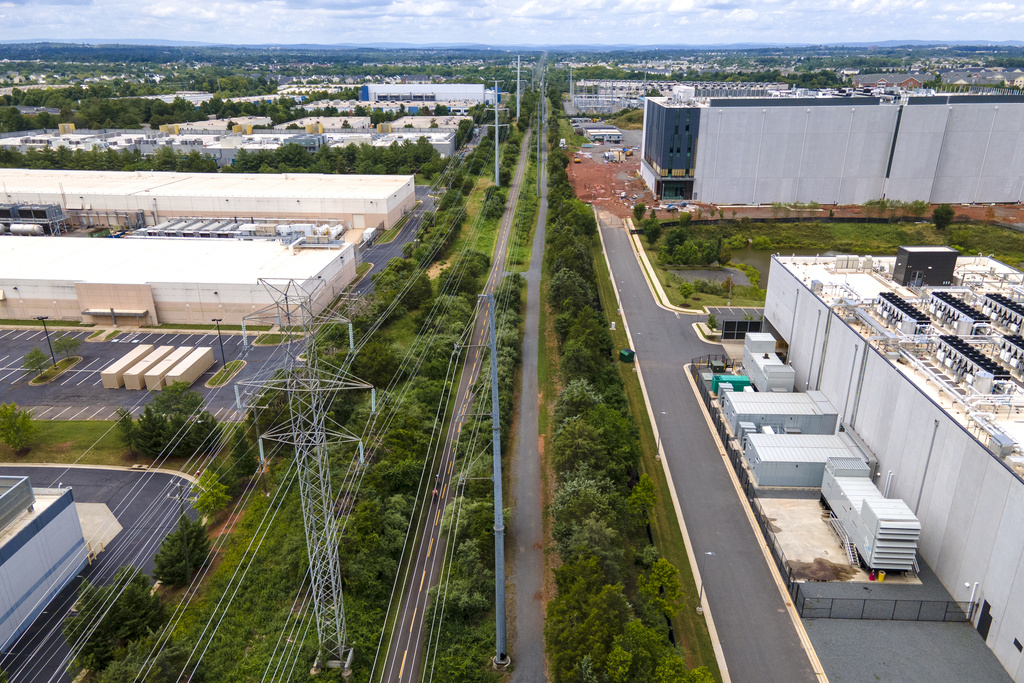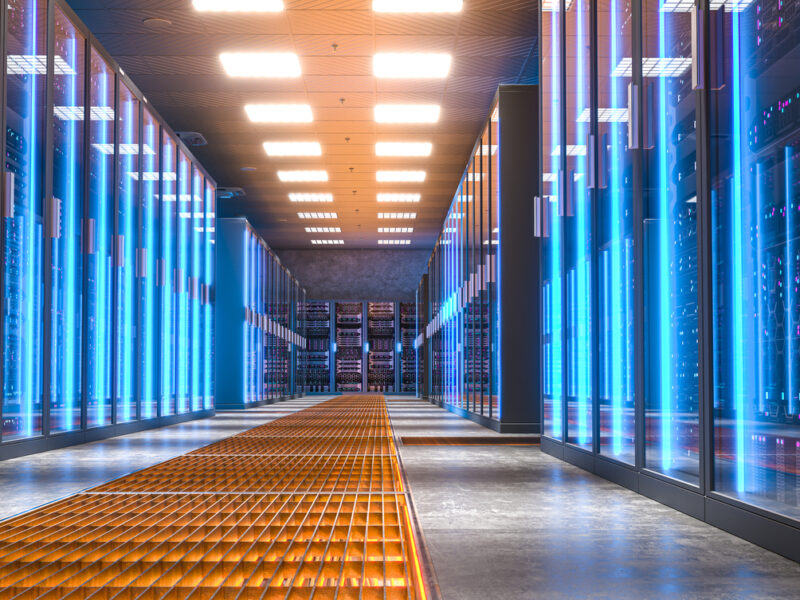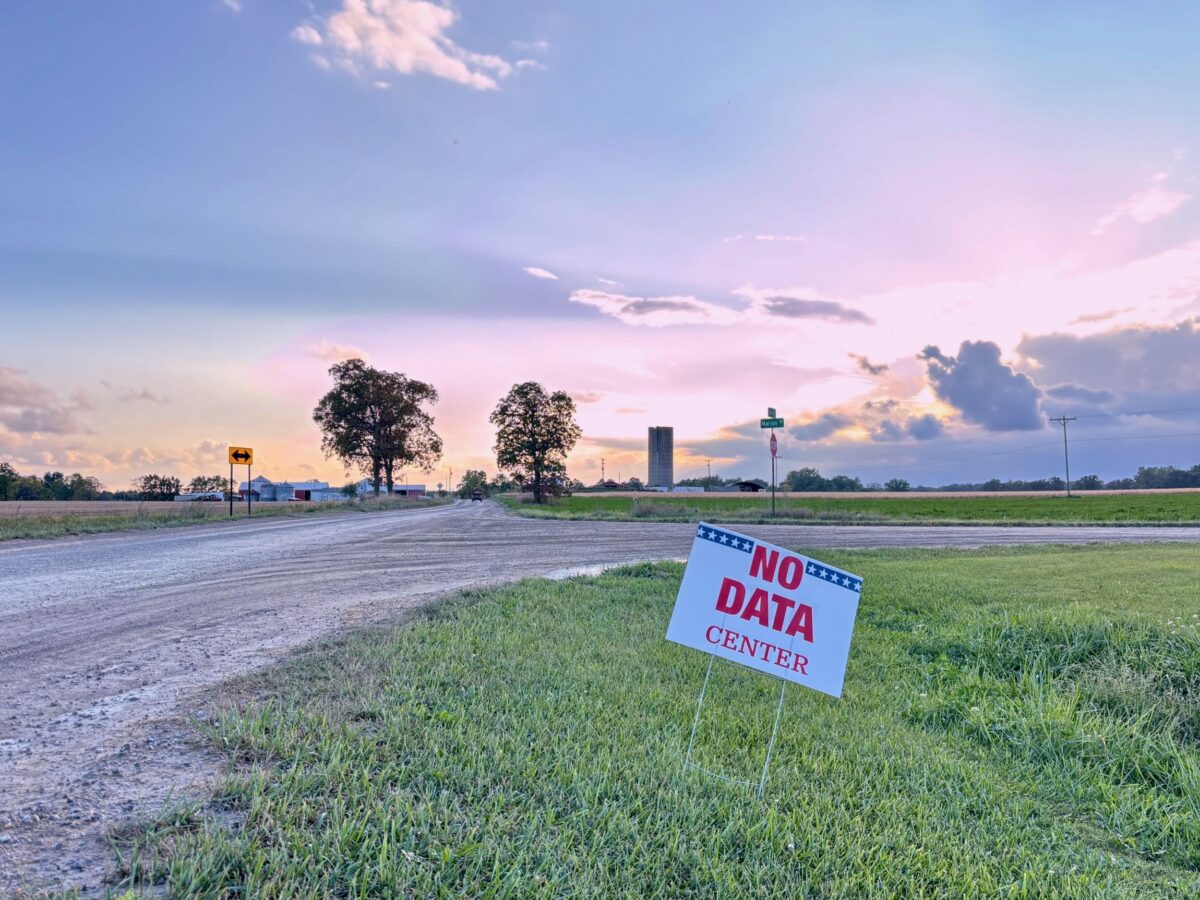Overview:
- Nationwide, customers could see electricity bills increase 8% by 2030 on account of data centers, according to Carnegie Mellon University.
- A Consumers Energy proposal "is designed to protect customers from potential stranded costs associated with data center loads," according to the utility.
- Advocacy groups intervening in the Consumers case say its scope is far too narrow to address all costs that could be shifted from big tech to ratepayers.
With data center developments emerging across the country, ratepayers are beginning to see significant spikes in their power bills, and consumer advocates warn the same thing could occur in Michigan if regulators fail to add protections quickly.
Douglas Jester, a consultant with 5 Lakes Energy who frequently contributes testimony in Michigan Public Service Commission cases, told Planet Detroit he’s concerned data center costs will be passed on to ratepayers.
“(When) something like a data center comes in, it’s large relative to the utility, and if there’s any cost shifting going on, it could be a lot for the customers,” he said.
How big of a cost shift could data centers drive?
A single, 1-gigawatt data center could increase residential rates by 5%-10% if protections aren’t added, Jester said. One gigawatt is roughly twice the energy used by the city of Pittsburgh last year.
Consumers is considering 15 GW of data center projects, Laura Connolly, director of cost and pricing at Consumers, said in an MPSC filing.
DTE Energy CEO Joi Harris said during a July earnings call the company has 7 GW of projects in its pipeline.
The projects would dramatically increase the utilities’ demand, which peaked at 7.5 GW for Consumers and 10.2 GW for DTE on the same day in 2022, according to the MPSC.
Consumers Energy has signed its first deal for a large, 1 GW “hyperscale” data center, although the facility’s location and name of the developer were not disclosed, Data Center Dynamics reported in August.
In southeast Michigan, Planet Detroit is covering several large data center proposals in Washtenaw County and one in Howell Township.
Data centers are already driving significant cost increases elsewhere.
Monitoring Analytics, the independent watchdog for mid-Atlantic grid operator PJM Interconnection, found that 70%, or $9.3 billion of last year’s electricity price increase in the mid-Atlantic region, is due to data center demand.
Nationwide, customers could see electricity bills increase 8% by 2030 on account of data centers, with some regions facing increases as high as 25%, according to a Carnegie Mellon University analysis.
Nearly half of Michigan census tracts spend 10% of their income on energy on average, with a burden as high as 36% in some parts of Wayne County, according to a University of Michigan analysis. The U.S. Department of Energy defines any household spending more than 6% as energy burdened.
Ratepayer advocates say Consumers data center plan falls short
Tax incentives for large data centers signed into law by Michigan Gov. Gretchen Whitmer in early 2025 include language to protect ratepayers from the costs of supplying power to the facilities, but energy experts told Planet Detroit this language provides few specifics.
Consumers Energy brought a tariff case, which would determine rates, terms, and conditions for customers, before the Michigan Public Service Commission in February. The tariff case could offer protection from stranded asset scenarios, such as the utility building out infrastructure to serve a data center only to have the company cancel the project or leave before the costs are recouped.
The utility’s proposed 15-year minimum contract term; exit fee if a user ends service before the contract term ends; and 80% minimum demand requirement could help mitigate risks to other customers, Consumers spokesperson Matt Johnson told Planet Detroit in a statement.
The minimum demand requirement would charge data centers for at least 80% of their forecasted electricity need, regardless of usage.
“This proposal is designed to protect customers from potential stranded costs associated with data center loads,” Johnson said.
MPSC spokesperson Cathy Cole said the commission is unable to comment on a pending case.
Cole shared a December Crain’s Grand Rapids Business article in which MPSC Chair Dan Scripps said it’s important to look at utilities’ proposed tariffs to ensure “we’re not left holding the bag if the anticipated demand doesn’t show up or ultimately stays shorter than expected.”
Advocacy groups intervening in the Consumers case say its scope is far too narrow to address all costs that could be shifted from big tech to ratepayers.
The Michigan Environmental Council, Natural Resources Defense Council, Sierra Club, and Citizens Utility Board of Michigan said Consumers’ proposed 15-year contracts for data centers are insufficient to avoid the issue of stranded assets, and requirements are needed to ensure facilities pay the full cost of additional generation for their operations.
The environmental groups argued in a petition to the MPSC that Consumers’ proposed 15-year minimum contract term for data centers won’t adequately cover the costs of supplying power to them because these investments are often paid down by the utility over 30 years or more.
Service agreements between Consumers and data center companies should also include benchmarks for meeting the state’s requirement for 100% clean energy generation by 2040, these groups say.
Otherwise, utility customers will pay for the state’s tax breaks and the climate and energy costs of supplying the facilities with polluting fossil fuel generation, largely to power artificial intelligence technology, according to Chris Gilmer-Hill, policy associate with the Michigan Environmental Justice Coalition.
“You’re raising rates all for a product that is not actually helping you, and, worst case, is actively taking away your job,” he said.
Dario Amodei, the chief executive of the A.I. company Anthropic, told Axios in May the technology could eliminate half of all entry-level white collar jobs and increase unemployment by 10%-20% within the next five years.
Yet local communities could benefit from the tax revenue brought by data centers, with the potential to generate significant tax revenue for schools and local governments.
Michigan’s other, major investor-owned utility, DTE Energy, has not filed a data center tariff case, said spokesperson Ryan Lowry. The company continues to “monitor and benchmark how other utilities and public service commissions across the country are addressing data center rates,” he said.
Data centers could add billions in costs, jeopardize Michigan climate goals
Accommodating data centers’ large power demands with the existing framework for distributing costs could raise rates for residential customers as utilities are forced to pay for costlier new power generation, 5 Lakes Energy’s Jester said.
A Michigan utility would presently divide the cost of new generation, which is more expensive than existing generation, proportionally among customers, he said. If, hypothetically, a new power plant costs 30 cents per kilowatt-hour to operate, then industrial and residential customers would both pay a share of this, although current generation may only cost 10 cents per kWh.
This cost allocation would be unfair, and data centers should pay the full cost of new power generation, Jester said.
“If the data center demand comes, they need to bring with them or pay for enough generating capacity to serve their additional demand to not drive up the cost for everybody else,” he said.
Although not all the 15 GW of projects in Consumers’ pipeline may go forward, the 2.65 GW of “probable prospects” identified by Consumers could still trigger $8.1 billion in generation costs, according to a brief filed by intervenors in the tariff case.
Jester said that without sufficient generation, increased load growth could drive up the wholesale price of power and filter down to other customers.
Bringing new generation online could be difficult. A 10-year queue exists for renewable energy projects to connect to the grid, Jester said.
Fossil fuel generation is experiencing similar issues, with data center demand helping to create as much as a seven-year waitlist to purchase turbines for natural gas plants, according to a May S&P Global report.
Advocacy groups are pushing the Michigan Public Service Commission to ensure data center contracts include plans for companies and utilities to meet state climate goals.
“The way you actually achieve the (renewable energy standard) is to make sure the planning is happening at the front end,” said Shannon Fisk, director of state electric sector advocacy for the environmental law group Earthjustice.
If utilities fail to do this, load growth from data centers could trigger “off-ramp” provisions in Michigan’s clean energy law that allow fossil fuel generation to stay online if there is inadequate capacity to meet demand, Fisk said.
MPSC spokesperson Cole said the commission cannot comment on data center power demands triggering offramp provisions in Michigan’s climate law due to the pending Consumers data center tariff case.
Following the Consumers case, Earthjustice’s Fisk said the MPSC may need to open another case to establish ratepayer protection as data centers come online statewide.
“How do we put in place at the front end the rules of the road that are needed to ensure that those costs don’t fall on already overburdened customers and instead are paid for by the multimillion-dollar data center companies?”
Editor’s note: This story has been updated to correct an incorrect unit of power used in reference to the 15 GW of data center projects Consumers Energy is considering.
🗳️ Civic next steps: How you can get involved
Why it matters
⚡ Data centers have large energy and water demands that environmental advocates argue could jeopardize Michigan water resources and state climate goals.
Who’s making civic decisions
🏛️ The Michigan Public Service Commission will decide on Consumers Energy’s tariff case, which could help determine how data center costs are distributed and how utilities will meet state climate goals. The MPSC could also weigh in on these issues in future utility rate hike cases and integrated resource plans, where they show how they will meet future energy demands.
How to take civic action now
- 📅 Attend the MPSC meeting 1-2 p.m. on Nov. 6 at the MPSC offices located at 7109 W. Saginaw Hwy. in Lansing and virtually.
- 🌱 Follow The Citizens Utility Board of Michigan for updates on MPSC decisions and utility issues.
- 📩 Contact commissioners by phone at 800-292-9555 or 517-284-8100, via email at LARA-MPSC-commissioners@michigan.gov, or by mail at PO Box 30221, Lansing, MI, 48909
- 🔎 View step-by-step instructions on how to submit a public comment on a case before the commission here.
- 📣 Ask the MPSC if it will open a case to establish ratepayer protections for data centers.
What to watch for next
🗓️ A decision by the MPSC on the Consumers tariff case.
Civic impact
🌍 Engaging with the MPSC on data centers is one way residents can shape the impact these developments will play have in the state.
⭐ Please let us know what action you took or if you have any additional questions. Please send a quick email to connect@planetdetroit.org.
MORE REPORTING ON DATA CENTERS
$1 billion data center plan hits roadblock in Howell Township
Planning commission vote follows a seven-hour public meeting and outpouring of resident concern over impacts to water resources and energy prices.
Attorneys sketch out Saline Township’s options in data center fight
Threat of monetary damages adds to risk for rural township fighting data center.
Washtenaw communities fight data center developments: ‘Not soft touches’
Data center proposals in Washtenaw County force local officials to weigh in on massive developments that could bring significant local tax revenue — and transform rural landscapes.





